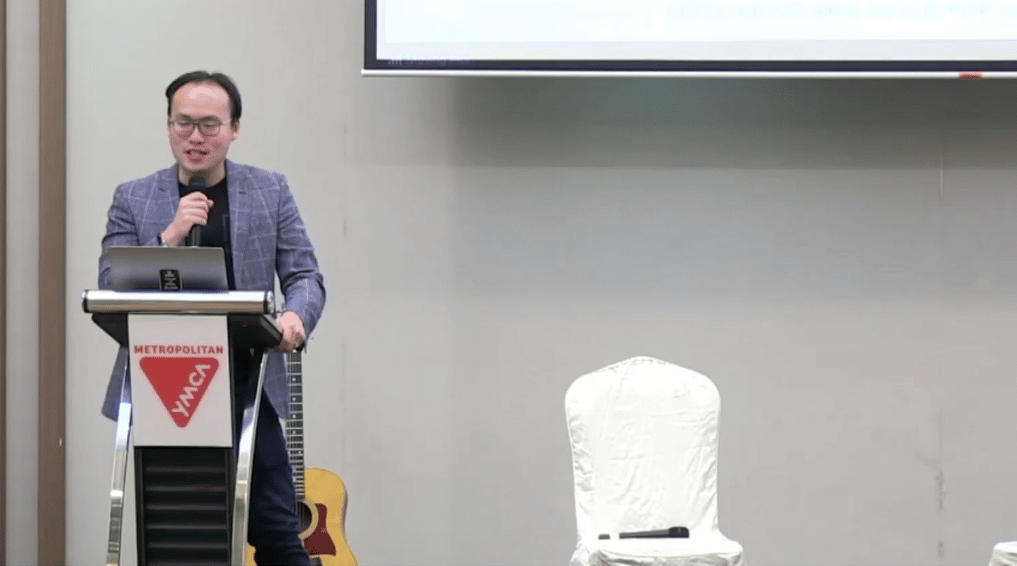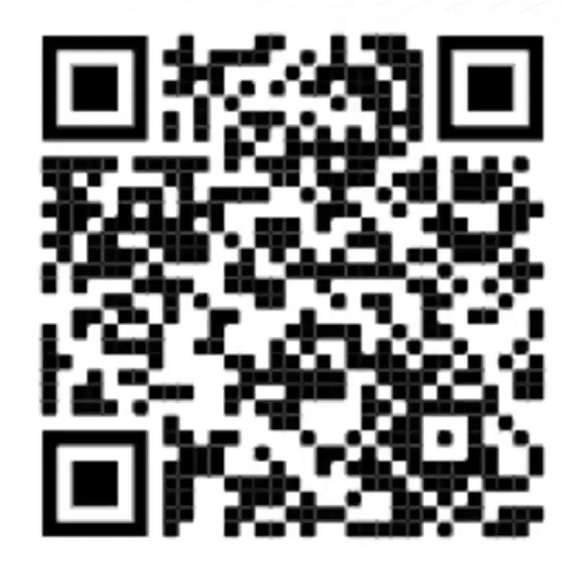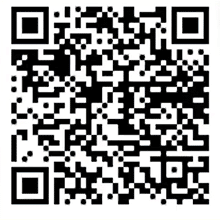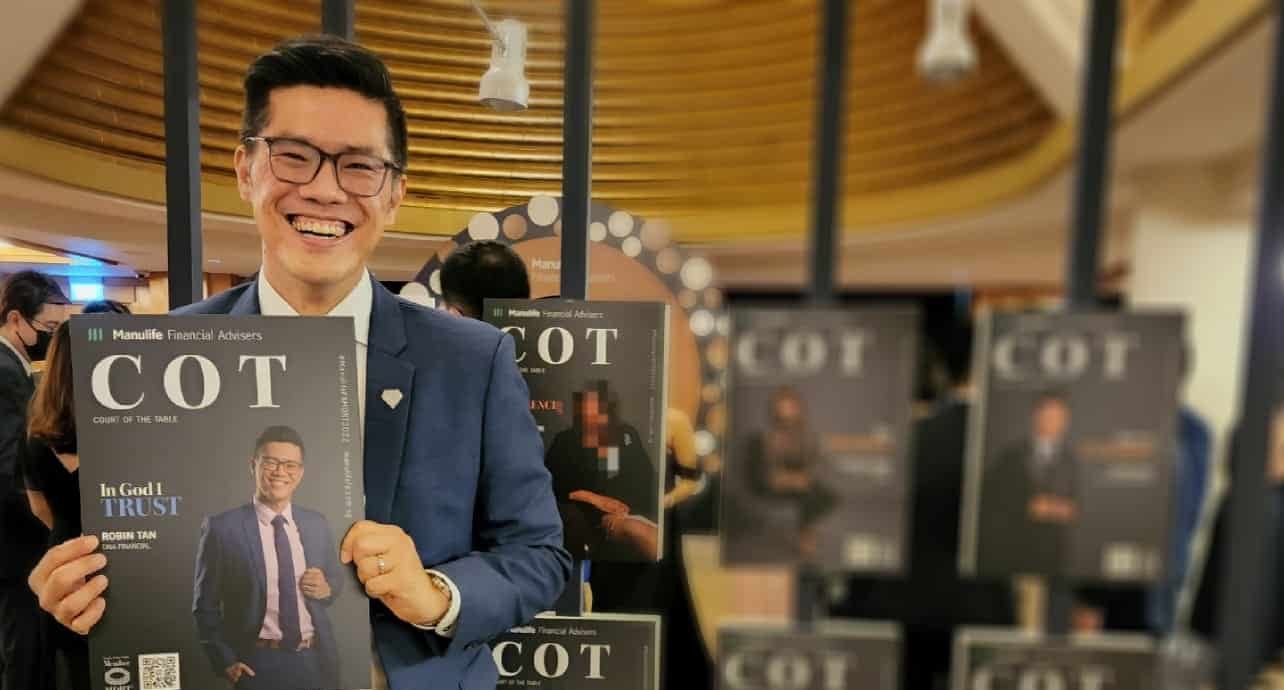What does the Bible have to say about blockchain, bitcoin and the digital economy?
by Christine Leow // January 31, 2023, 11:35 pm

Blockchain technology's ability to generate new wealth has given rise to the question: How should Christians view blockchain? Image by Gerd Altmann from Pixabay.
Is cryptocurrency “the mark of the beast” that is related to the Antichrist mentioned in Revelation (Revelation 13:17)? Is blockchain biblical? What is the Christian to make of the digital economy?
These were questions about new wealth that Jason Lee addressed when he spoke at the N5 Conference 2022.

Jason Lee speaking at N5 Conference 2022.
N5 is short for Nehemiah 5, a part of the Bible which deals with economics and personal finance. The conference has been so named because it deals with biblical perspectives of personal wealth.
Is cryptocurrency “the mark of the beast”?
Running on two consecutive years, the N5 Conference is the largest annual Kingdom-focused personal finance conference.
Delegates from four countries came together over two days with Kingdom-minded business and ministry leaders to share their insights over more than 20 sessions.
The theme for the second conference was Arise and Build for Generations to Come.
Jason spoke on the topic Blockchain and the Bible. Jason is the Global Head of Community for the Algorand Foundation as part of the Algorand blockchain protocol. Algorand is an open-source, decentralised blockchain network.
An advocate for emerging technologies, Jason was on the Forbes 30 Under 30 Asia list in 2018.
He is a board member of the Lausanne Movement, an international organisation that aims to connect influencers and ideas for global mission. In addition, he stewards a community called Christians in Crypto and Blockchain Community.
Why should we care?
Cryptocurrency is an example of new wealth that is a “once-in-the-history-of-the-human-race kind of thing”, stated Jason.
“We are here to learn about how we can be good stewards of our wealth, including cryptocurrency.”
Currently, 50% of the world is persistently connected to the Internet.
In 10 years’ time, 90% will be persistently connected.
People are already starting to transact and live their lives online.
Virtual traffic will only increase.
Part of the transactions that takes place happens in the world of blockchain and much wealth will be generated from this.
“We are here to learn about how we can be good stewards of our wealth,” said Jason.
Key terms in the world of digital economy
Blockchain
Blockchain is a shared ledger of all transactions across a distributed peer-to-peer network, or computers and devices.
It is the equivalent of the centralised book-keeping of old where records of properties, taxes, births, marriages, stocks and debts were kept. An example of such records is the genealogy of Jesus, spanning over 42 generations all the way to Adam.
In the past, because the records were kept in physical books, they could be easily destroyed or lost. Blockchain addresses this problem with new technology that allows the records to be kept simultaneously across many computers.
So, even if one computer is destroyed, others exist to maintain the record. The idea is so powerful that blockchain has become a US$3 billion industry.
Blockchain has become the infrastructure in which many applications take place. There are over 100 blockchains in the world and many of the world’s most recognised companies use blockchain technology.
Bitcoin
The most popular application of blockchain technology is bitcoin. Bitcoin is the world’s first successful decentralised cryptocurrency and payment system where you can buy, sell and exchange without an intermediary.
In a seminal white paper written by Satoshi Nakamoto, it was mentioned that there are 21 million bitcoins in the world which can be mined. 18-odd million have already been mined. Each time a bitcoin is mined, the person who mines it receives a cryptocurrency. Because the demand for bitcoin is so high, its value has also risen.
During the pandemic, the value of bitcoin rose from US$6,000 to US$60,000. But cryptocurrency is very volatile. The value of bitcoin has since fallen to US$20,000.
Bitcoin is not the only cryptocurrency. There are others.
Cryptocurrency
A cryptocurrency is a representative store of digital value that lives on a given blockchain. There are 13 to 15,000 cryptocurrencies. Crypto comes from the word cryptographic much like what is used in Morse code.
“So, when you transfer cryptocurrency, there’s a level of pseudo-anonymity, meaning no one knows who is the owner. But you can track it because it’s on the blockchain.”
While cryptocurrency is rising in popularity, it is but a fraction of the world stock market. The cryptocurrency market capitalisation, which is the total value of all the coins that have been mined, is US$1 trillion. The global stock market is a US$70-odd trillion industry.
NFT
A Non-Fungible Token is a digital asset that confers ownership of a virtual good that cannot be divisible. An NFT is like a cryptocurrency except that it cannot be broken up. Bitcoin, for example, can be divided up to eight times.
NFTs can be anything from art to event tickets, music, gaming items and sports.
The NFT market was valued at US$11.3 billion in 2021. The sector is predicted to grow 33.7% over the next 10 years. As a result, there will be a lot of new wealth generated.
DeFi
DeFi is a financial system based on blockchain technology that reimagines transactions by removing intermediaries. This is a play on CeFi which is centralised financed where banks are needed as the go-between when you want to transfer money from one person or organisation to another.
The financial market size of DeFi is US$11 billion and it is expected to grow at a rate of 42.5% over the next 10 years.
Cryptocurrency Wallet
To transact in cryptocurrency, you will need a cryptocurrency wallet to store your cryptocurrencies. Every wallet comes with a password and a private key.
Who holds the key determines the type of wallet you have. A hot wallet is one where a third party holds the key. A cold wallet is one where the owner holds his own keys.
Cryptocurrency Exchange
A cryptocurrency exchange is a marketplace platform where cryptocurrencies can be bought, sold and exchanged. It is the third party in the hot wallet.
There are over 520 cryptocurrency exchanges in the world, many of which are regulated.
Web3
Web3 is the entire decentralised online ecosystem based on blockchain technology.
In the early days of the Internet, there was only Web 1.0 from the 1990s up to 2004. Then, we could only read what was on the web. With emails came the era of Web 2.0. We could not only can read but write and respond on the web.
Web 3.0, which started in 2014, allows us to read, write and own.
“We are no longer users of products. Now, we have an opportunity to own a part of the network. When you own a cryptocurrency, you own a part of the network because the cryptocurrency lives on the blockchain.”
Should we invest in cryptocurrencies?
Given the vast amount of wealth involved in the digital economy, should the Christian be involved? Should a Christian buy cryptocurrencies? Which cryptocurrency would make a worthwhile investment?
“Cryptocurrency is at the top end of risks, alongside private investments in companies.”
Jason gave this advice: “There are three considerations when you are thinking about this.
“One, your ability. Do you have the ability to learn and understand it? Two, your liquidity. Do you have money in the bank so you won’t fall into debt? Three, your suitability. This is a very high-risk profile.
“Cryptocurrency is at the top end of risks, alongside private investments in companies.
“Cryptocurrecny also has the VUCA element – volatility, uncertainty, complexity and ambiguity.
“So, you need to take a lot more time to learn about it instead of jumping into it.”
What does the Bible have to say about the digital economy?
1. Stewardship over speculation
“If Jesus was living with us in 2022, I have little doubt that Jesus would have told The Parable of the Bitcoin (Matthew 25:14-20),” said Jason to laughter amongst the audience.
“What would Jesus do if He were a crypto native?”
There are three mentalities that we have to be aware of, continued Jason. The first is the Get-rich Quick Mentality which 1 Timothy 6:9-10 warn us against.
“Cryptocurrency is a form of digital money,” said Jason, adding that he knows of Christians who got badly burnt in the cryptocurrency market and walked away from the Church as a result, as well as those who have gotten confused and have asked to learn what the Bible has to say about cryptocurrency.
The second is the Greed is Good Mentality which Luke 12:15 speaks against.
“Now people are trying to define themselves by the possessions that they have, and the digital world and identity is linked to how they see the crypto space as well.
Finally, there is the Trap of Debt Mentality (Proverbs 22:7). Don’t borrow to invest, warned Jason.
2. Technology as a tool
Drawing from the story of the Tower of Babel (Genesis 11:1-9), Jason talked about the power of collaborative effort.
“Even the Lord acknowledged that when people collaborate, nothing is impossible for them (Genesis 11:6). That is why the US$1 trillion industry exists which did not exist before 2009.”
“The hands that built the golden calf also built Israel. The question is: How can we use the technology as a tool?”
But the technology that has made all this possible has also resulted in workaholism for the people working in the cryptocurrency industry, hyper opportunities where people are constantly on the look-out for cryptocurrency investments and even criminal behaviour such as scams, frauds and unethical behaviour.
An example is the massive cryptocurrency scam by former FTX CEO Sam Bankman-Fried in 2022.
Technology is but a tool used to extend human capabilities, like any other tools, Jason pointed out. Cain built a city, Noah built an ark, the people built the Tower of Babel and King Solomon built the temple with tools. Jesus used tools as a carpenter. Paul used letters and numbers to write letters and those can be considered a type of tool.
Tools can be used for good or bad.
“The same hands that built the Tower of Babel also caused the destruction that caused them to scatter. The hands that built the golden calf were also the ones that built Israel. The question is: How can we use the technology as a tool?”
3. Bible over bitcoin
“Follow Christ not crypto, the Bible not bitcoin,” said Jason.
“Follow Christ not crypto, the Bible not bitcoin.”
“As godly stewards of our money, we should not squander it even though we received it. We should say, ‘What would Jesus do if He were a crypto native?’”
There are some Christians in the cryptocurrency space who are passionate about seeing how God works in that space.
One such organisation is the Christians in Crypto and Blockchain Community, of which Jason is a part.
They have a WhatsApp group of some 175 people who communicate regularly and meet over Zoom to pray over major cryptocurrency events.
Is bitcoin the one-world currency of Revelation 13?
“We will never know. What we know is that if it is really true, then as Christians we should be part of something like this.
“We should be light in the darkness, and we should know and understand the workings of this. So, I want to encourage you not to shun this but to look into this,” said Jason.
How should we view the power that comes with technology?
The power that technology affords us today is “God-like” in its proportions, says Jason.
Jesus knew of such limitless power. Yet, He chose to humble Himself even if it meant He had to die on the cross.
“This Christian virtue of humility was actually revolutionary. In the language of tech, it is disruptive.
“It is against the winner-takes-all, blitzscaling strategy, having first-mover advantage, building the next unicorn.
“So, we do not need to become like God and choose all this technology because we have Someone who walked among us and has unparalleled power to be like God. So, I want to remind us to go back to Jesus when times are difficult for you with your personal finance, and in your quest to find financial success and stewardship.”
Issues of concern
There were questions from the floor which Jason answered as well.
Is investing in cryptocurrency a zero-sum game? If I invest in it, will I cause others to lose money?
“See cryptocurrency as an extension of money. So, the question is the same as: Is the stock market a zero-sum game? Is investments into other opportunities a zero-sum game? It is as much a zero-sum game as any other investments.”
Admittedly, cryptocurrency is a lot more volatile and speculative. But it also moves in a cycle.
It has gone as low as US$1,200 and as high as US$60,000. So, as with all investments, research is important.
Cryptocurrencies have made it possible to be very rich, very quickly. What do you think of overnight millionaires?
“Go back to the fundamentals. Be discipled. Jesus had his 12. We need discipleship particularly among those who are in the industry.
“This form of discipleship has helped people to understand things better and to create faith-based crypto and blockchain applications to be light in the darkness,” said Jason.
How do you stop yourself from getting scammed in the crypto market?
“As with traditional scams, ask people around you. Have a good close-knit community whom you can approach.
“Do proper due diligence. Check with people you can trust,” said Jason.
RELATED STORIES:
Do you know God has given you an inheritance now that is indestructible?: N5 Conference 2022
Useful Resources
Read:
The Crypto Currency by Levine
Blockchain Revolution by Don & Alex Tapscott
Watch:
Coin: A Founder’s Story Bryan Armstrong

A recording of Blockchain and the Bible

We are an independent, non-profit organisation that relies on the generosity of our readers, such as yourself, to continue serving the kingdom. Every dollar donated goes directly back into our editorial coverage.
Would you consider partnering with us in our kingdom work by supporting us financially, either as a one-off donation, or a recurring pledge?
Support Salt&Light



